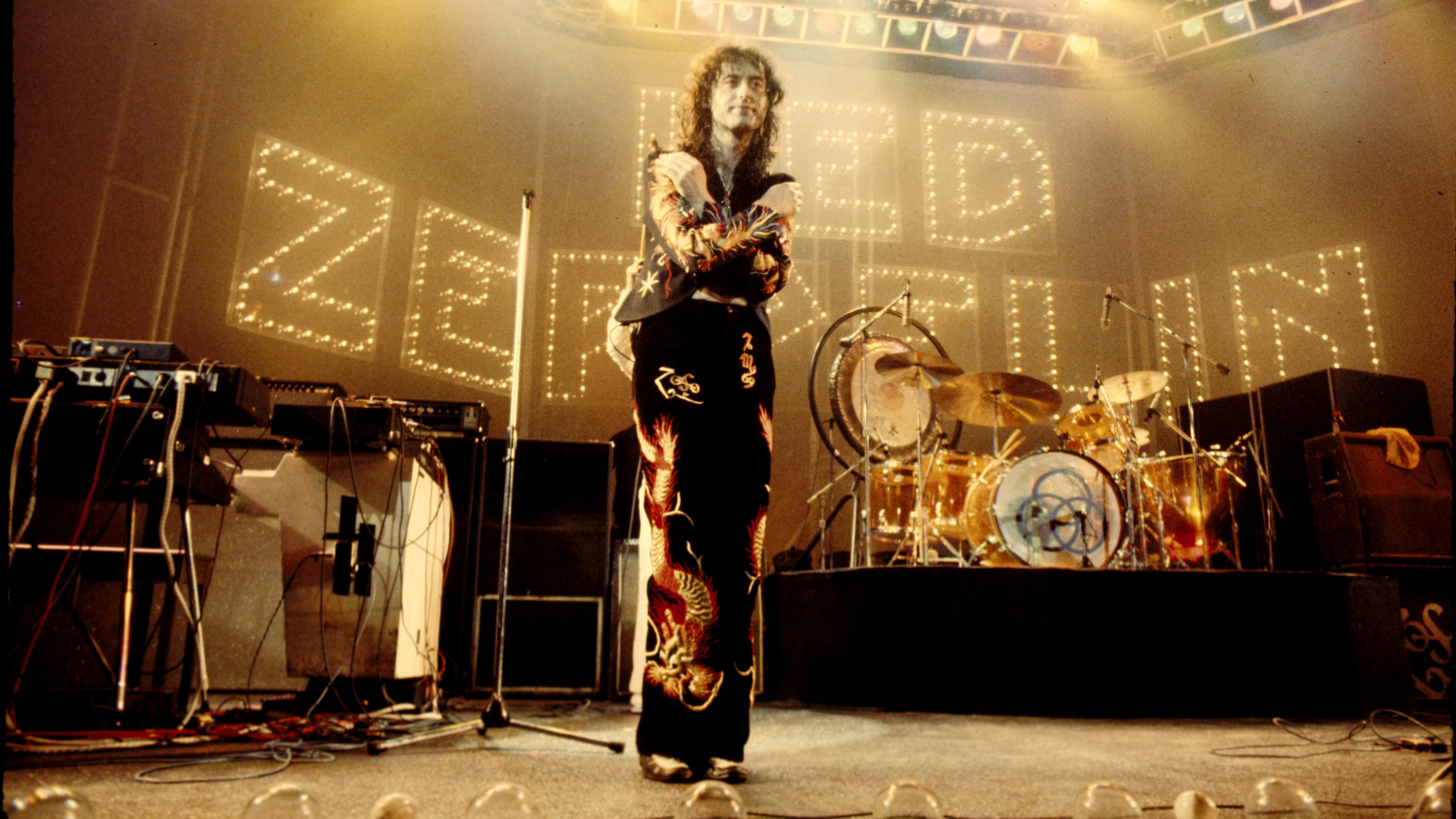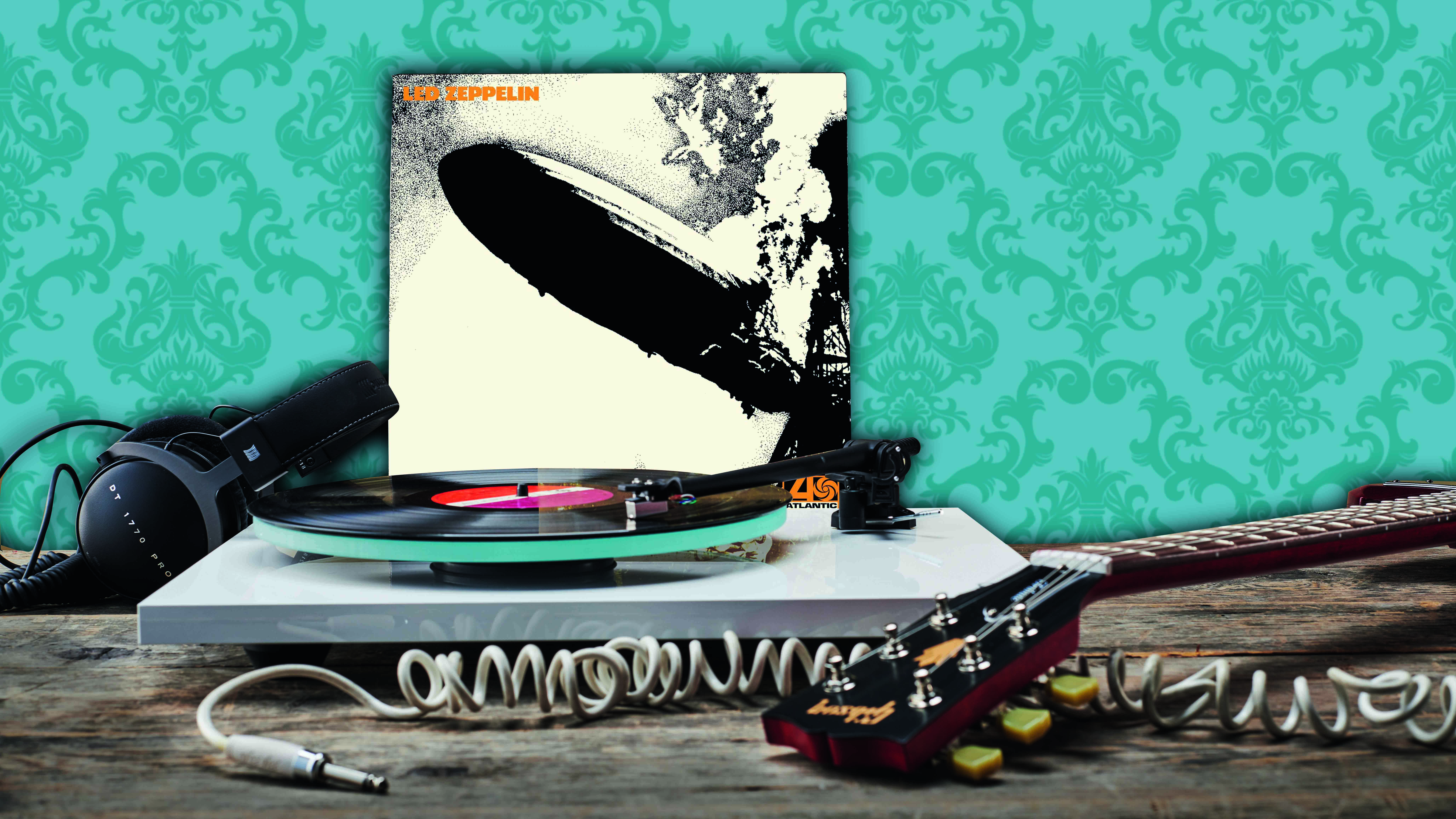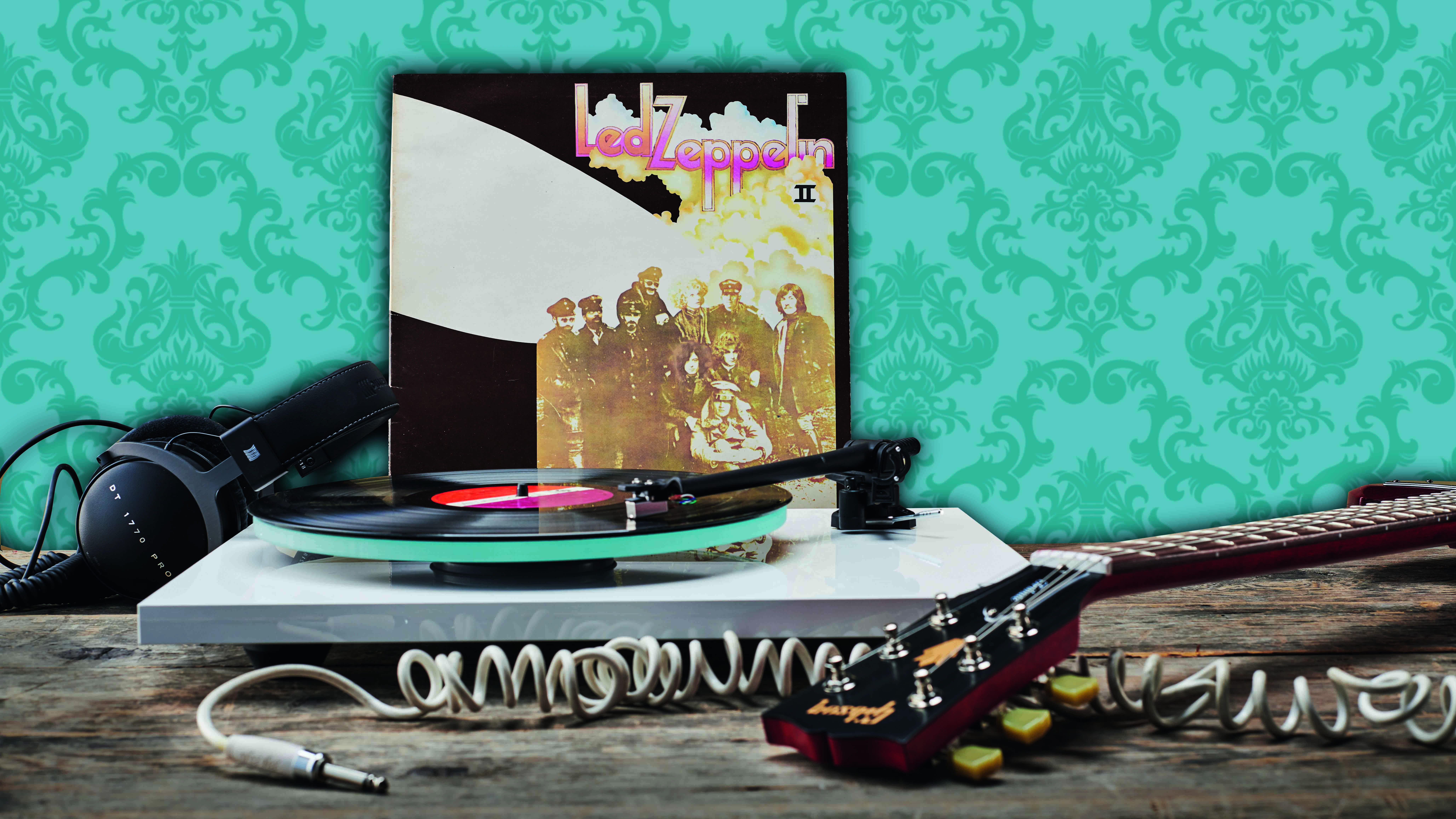5 songs guitarists need to hear by… Led Zeppelin
Best of 2021: Hammer-ons of the gods

Want all the hottest music and gear news, reviews, deals, features and more, direct to your inbox? Sign up here.
You are now subscribed
Your newsletter sign-up was successful
BEST OF 2021: Led Zeppelin were unquestionably one of the biggest and most successful bands of their time. Monster tracks like Whole Lotta Love, Stairway To Heaven and Kashmir have rightfully earned their places in the annals of rock n’ roll history, but with a vast array of influences, and changes to their sonic direction, there’s more so much to Zeppelin than this. Evolution came with every album and, with that, the quartet ensured that they would never become caricatures of themselves.
While no list as brief as this can give a comprehensive picture of the full capabilities of Jimmy Page and co., it aims to offer an introduction to some of their lesser known gems as well as exploring the many nuanced sides of Page as a player. From huge riffs, to melodic solos, to acoustic explorations in open tunings, there’s much to be gained from digging a little deeper into the band’s extensive back catalogue.
1. The Ocean (Houses Of The Holy, 1973)
As the closing track of their 1973 album Houses of the Holy, Zep arguably saved the best - and possibly most overlooked - track until last.
Written as an ode to the “oceans” of fans that would roar and sway at their live shows, ‘The Ocean’ has everything you’d expect from a hit Led Zeppelin track - on paper, at least. It’s got a massive riff, ripping lead work and driving rhythm playing to accompany the melodic sections. Compositionally, however, ‘The Ocean’ is far from standard.
To kick off proceedings, the track begins with John Bonham’s most audible and iconic Led Zeppelin vocal contribution. He chants: “We’ve done four already, and now we’re steady, and then they went: One, Two, Three, Four” - and legend has it, he was referring to the number of takes the band had already tried before nailing the track on tape.
The count-in, however, could lead some players into a false sense of security as "The Ocean" actually features an unusual time signature, with a repeated two-measure A minor pentatonic phrase made up of a bar of 4/4 and a bar of 7/8. It’s one of those riffs that’s actually easier to play if you don’t focus on counting it so much as feeling it.
As if that wasn’t unusual enough for an early ‘70s rock tune, the track takes a remarkable stylistic shift just after the guitar solo and, around the 3 minute mark, switches to 12/8 timing and a rousing “doo-wop” pastiche outro. In the hands of other musicians, such daring, jolting tangents could provide something of a car crash, but in the capable hands of Page, Bonham, Plant and Jones, we are treated to an absolute joyride.
Want all the hottest music and gear news, reviews, deals, features and more, direct to your inbox? Sign up here.
The song doesn’t get played as much as it should these days - with tracks like Whole Lotta Love, Kashmir, and “the-song-that-shall-not-be-played-in-guitar-shops” dominating radio play and countdowns of the greatest moments in rock. The band didn’t even play the track at their 2007 reunion show, while others from the album such as No Quarter and The Song Remains the Same were given the chance to live and breathe on stage once again.
A particularly memorable rendition of The Ocean, however, can be found in Led Zeppelin’s 1973 Madison Square Garden performance, where Page and Bonham bounce off each other with abundant charisma as they deliver the riff that air guitarists and air drummers alike would come to make a pig’s ear of for decades to com
2. The Rover (Physical Graffiti, 1975)
Appearing on Zep’s monstrous 1975 double album Physical Graffiti, writing for ‘The Rover’ actually began five years earlier at Bron-Yr-Aur - a rural retreat in Snowdonia, where Page and Plant spent time writing and recuperating after the releases of Led Zeppelin I and II.
Like most of the songs penned during this time of solitude, it almost certainly began life on Page’s Harmony Sovereign H-1260 - the guitar on which he wrote and recorded the acoustic parts for Stairway to Heaven.
After being omitted from Led Zeppelin III, IV and Houses of the Holy, and after much tinkering, revisiting and overdubbing, The Rover became a colossal hard rock masterpiece on Physical Graffiti, with Keith Harwood at the helm as engineer.
The opening riff is instantly recognisable and the track proceeds as a swaggering instrumental with dirty phased guitar, a heavy backbeat and rumbling bass for just over a minute before Plant finally joins in.
When playing the lead riff, you can hear Page digging hard into the fretboard and nuancing many of the notes with a slight bend. This, combined with the biting guitar tone, makes it feel as if he’s on the edge of dropping a huge pinched harmonic on almost every downstroke. It’s a wildly energetic rock guitar tone that he controls brilliantly.
One of the final additions to the track was Page’s whirling, overdriven solo, which is heavy on intricate, melodic hammer-ons and pull-offs, and comparatively light on howling bends - right up until its squealing conclusion, that is. With the solo added and the original acoustic backing track dropped, The Rover was finally complete.
The track is a prime example of Page’s ability to judge when a song is truly finished - journeying from pastoral sketch, to fully-formed rock masterpiece over the course of almost five years. Similarly, on Led Zeppelin III Page had resurrected and reworked Tangerine, which made its debut years earlier as a Yardbirds track under the name of Knowing That I’m Losing You.
3. Black Mountain Side (Led Zeppelin, 1969)

Black Mountain Side might seem like a curveball both in this list and on the album in which it sits; Led Zeppelin’s mammoth debut offering of 1969. It is, however, a significant early indicator that Page was not to be pigeon-holed as a straight-up rocker.
The acoustic instrumental track was inspired by a traditional Irish folk song by the name of ‘Down by Blackwaterside,’ but Page gave it an Indian twist. His interpretation more or less follows the arrangement of Bert Jansch’s 1966 rendition of Black Water Side – only Page ditched the vocals and gave it a different title.
It’s a slightly contentious issue, as Page never credited Jansch, but no court proceedings ever came to fruition. Page likely learned the arrangement from folk revivalist Al Stewart, who was a fan of Jansch, and who Page had recently sessioned for.
Recorded on a Gibson J-200 in DADGAD tuning, the track features a low D drone, rapid pull-off phrases and a loose, slightly hypnotic feel – all accompanied by tabla drumming to emphasise the Indian flavour.
In Brad Tolinski’s book, Light And Shade: Conversations with Jimmy Page, Page notes, “As a musician, I’m only the product of my influences. The fact I was listening to folk, classical, and Indian music in addition to rock and blues was one thing that set me apart from so many other guitarists at the time”.
He was also well aware that tracks like ‘Black Mountain Side’ provided a necessary sonic contrast, explaining to Tolinski: “Our acoustic songs were designed to create dynamics both on the albums and in live performance. The hard ones wouldn’t have had as much impact without the softer ones.”
Live, Page would often perform Black Mountain Side in conjunction with White Summer – a composition also written in DADGAD with a similar Eastern-inspired feel – while the rest of the band had a quick break.
The live performances often featured an extended improvised introduction, in which Page would demonstrate his uncanny ability to extract sitar-like sounds from an acoustic guitar. Note that this was not a feature when Jansch played Black Water Side, and was very much a Page innovation.
Other performances show Page ripping through an electrified version of ‘Black Mountain Side’, on his 1963 Danelectro 3021– further proving that he could take elements from disparate styles and bring them together with fluency and flair to create an innovative rock sound all of his own.
4. Celebration Day (Led Zeppelin III, 1970)
Often misunderstood as “the acoustic album”, Led Zeppelin III is a sophisticated work that represents a leap towards a cohesive “Led Zeppelin” sound. The album’s third track, ‘Celebration Day’, is one of the finest examples of their successful mixing of genres and ideas. It contains layered guitar riffs and slide parts - all intricately arranged by Page to create a richly textured, highly optimistic-feeling, piece.
Parts of the track were performed in standard tuning, while the energetic slide riff was recorded in open A tuning. Page’s solo is a succinct masterclass in melodic lead playing, yet retains the swaggering delivery he had by then become known for.
In Rolling Stone, record producer Rick Rubin wrote that Celebration Day "feels like a freight train, even though it's not one of their heavier songs. There's tremendous momentum in the way they play together. The bass playing is beyond incredible and the guitars interact really well—there's a heavy-riffing guitar, which is answered by a funky guitar.”
Page and the band, it seemed, were resolutely opposed to repeating what they had done before
The song very nearly didn’t make it onto the album due to a cock-up in the studio where an engineer accidentally erased the drum part that was intended to open the track. Instead, the Moog synthesiser drone from the previous track, ‘Friends’, was used to create an ambient segue into ‘Celebration Day’. Luckily, the transition worked perfectly and even served to add another textural layer.
All in all, Celebration Day feels distinctly modern for an early seventies rock track, especially when you consider how contemporary releases such as The Doors’ Roadhouse Blues or even Derek and The Dominos’ monster hit Layla fell more singularly into the “blues rock” box.
Page and the band, it seemed, were resolutely opposed to repeating what they had done before, and the whole album is testament to this. Unfortunately, at the time, this meant the record received some less than complimentary reviews. Page was so put out by this that he refused to give press interviews for the next 18 months.
Now an undisputed classic, we can safely say that Page and co. were ahead of their time with ‘Led Zeppelin III’, and certain corners of the music press just weren’t ready for it. Maybe this actually represents the ultimate accolade.
5. Heartbreaker (Led Zeppelin II, 1969)
Heartbreaker is a great example of just how heavy Jimmy Page’s playing could be when he really decided to let rip. Coming in at the midpoint of Zeppelin’s second album, Heartbreaker is often overshadowed by the LP’s much celebrated opening track, Whole Lotta Love.
The juggernaut of an album helped solidify Zeppelin’s status as a rock supergroup and even knocked The Beatles’ Abbey Road off the No. 1 spot in the US Billboard charts.
Heartbreaker was recorded - for the most part, at least - at Atlantic Studios in New York, during the band’s second North American tour. The awe-inspiring improvisational solo was then recorded separately, as something of an afterthought, and dropped-in later. This afterthought became a highlight of the track and the album as a whole, and is - in not so technical terms - an absolute ear-melter.
Recorded in complete isolation from the rest of the band, the 46-second lead guitar outburst is a true solo in every sense of the word. In a 1993 interview with Guitar World, Page explained, “I was always trying to do something different, or something that no one else had thought of.”

Fluent and inventive, and utilising a rapid hammer-on and pull-off technique, the solo caught the ear of the young Eddie Van Halen. In a 2008 Guitar World interview, he revealed how the ‘Heartbreaker” solo had inspired his own revolutionary tapping technique:
“I think I got the idea of tapping watching Jimmy Page do his Heartbreaker solo back in 1971. He was doing a pull-off to an open string, and I thought, Wait a minute, open string…pull off. I can do that, but what if I use my finger as the nut and move it around? I just kind of took it and ran with it.”
During live performances, Page would often also extend the solo, improvising and adding in musical allusions spanning as far and wide as pinched phrases from Bach's ‘Bourée in E Minor’ to melodies from the songbook of Simon & Garfunkel.
Classic interview: Jimmy Page talks Yardbirds, Jeff Beck, Led Zeppelin and his early career with guitars
Ellie started dabbling with guitars around the age of seven, then started writing about them roughly two decades later. She has a particular fascination with alternate tunings, is forever hunting for the perfect slide for the smaller-handed guitarist, and derives a sadistic pleasure from bothering her drummer mates with a preference for “f**king wonky” time signatures.
As well as freelancing for MusicRadar, Total Guitar and GuitarWorld.com, she’s an events marketing pro and one of the Directors of a community-owned venue in Bath, UK.
